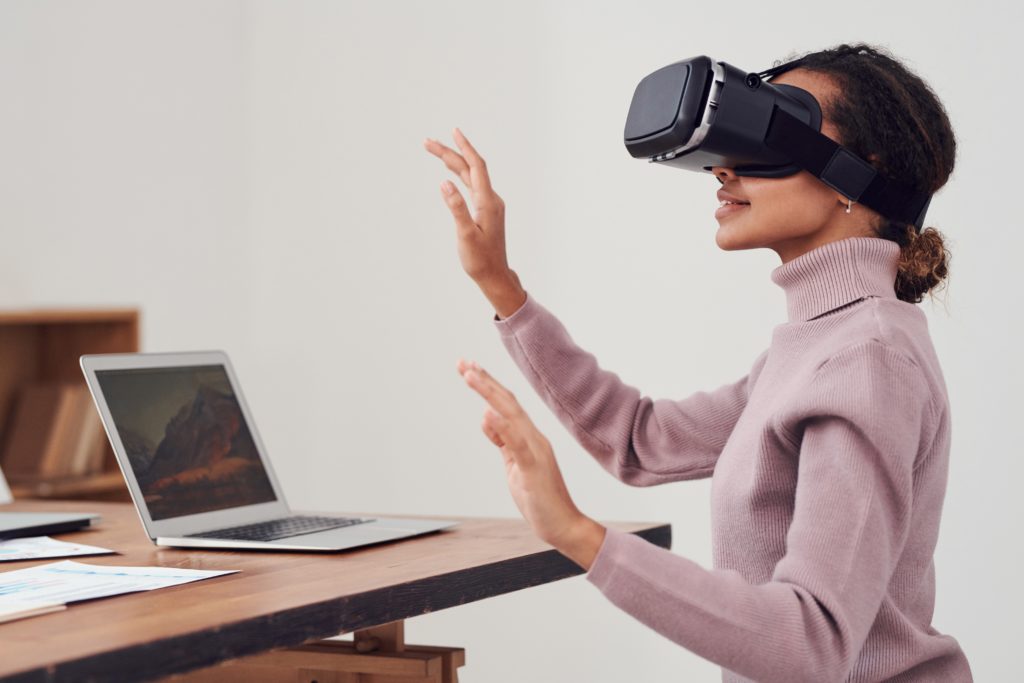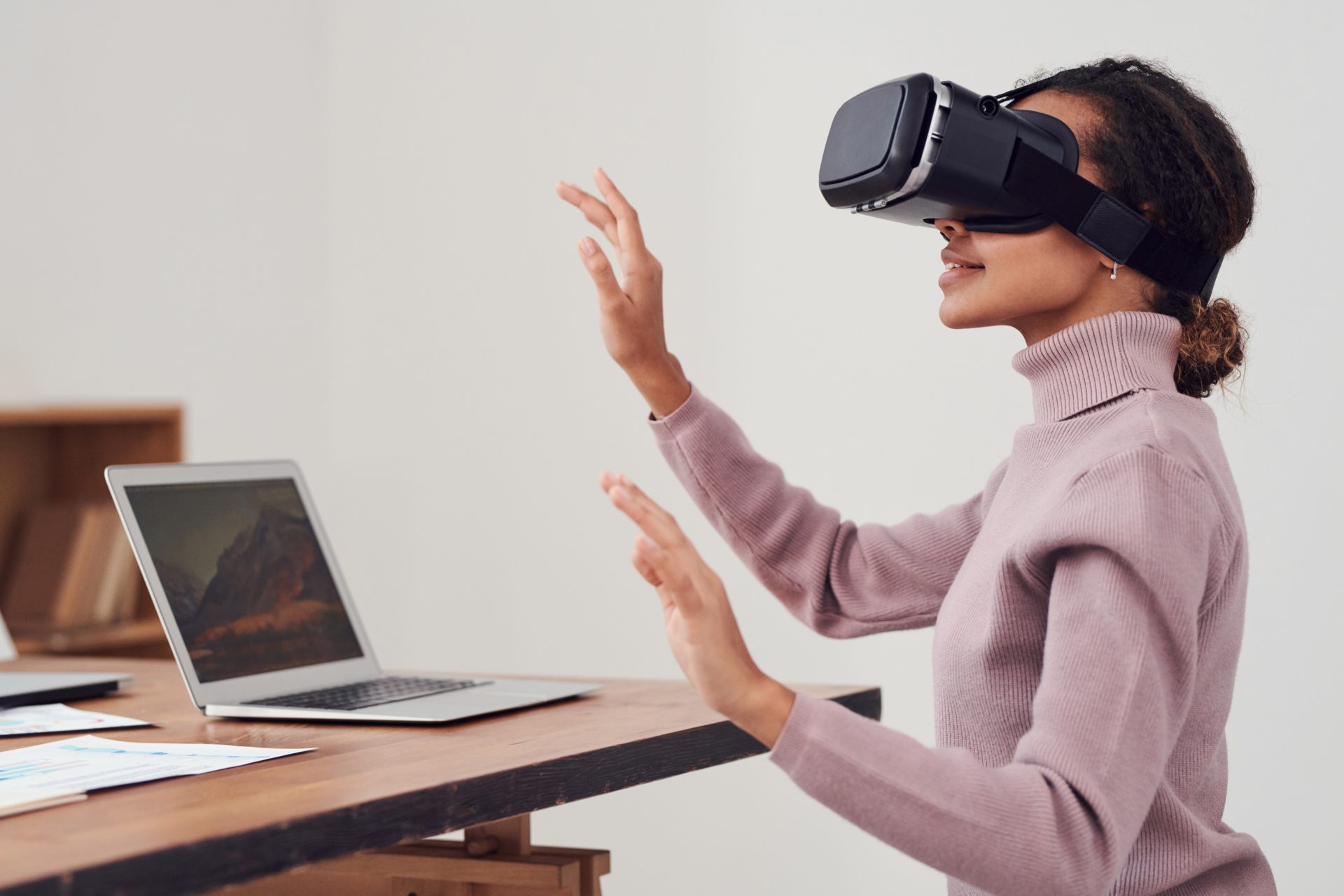On October 28th of 2021, Facebook Inc. Corporation made the decision to rebrand their company into Meta Platforms Inc. While their main brand will retain the original name, the social media giant’s conspicuous shift demonstrated a keen interest in transitioning the company’s focus towards the Metaverse as their future.
The announcement caused businesses and industries alike to dive into the concept of the metaverse, frantically seeking information on its validity and most importantly, how they could claim their slice of a potentially revolutionary innovation.
So is the Metaverse a real possibility? And how could it have an impact on the business world?

What is the Metaverse?
Pinpointing the exact definition of the metaverse can be difficult, mainly because it doesn’t exist yet.
The term “Metaverse” isn’t a new one; the phrase was coined in 1992 by sci-fi writer Neal Stephenson in his book Snow Crash, in order to describe any sort of three-dimensional virtual space.
Zuckerberg’s recent announcement has thrown what had already become a tech buzzword in recent years into the main spotlight.
The Metaverse refers to a general idea of how we interact with the technology around us. It’s often used to refer specifically to the idea of virtual reality spaces which have a life of their own, and continue to function even when a specific user disconnects from the server.
The umbrella term encompasses a wide variety of differing technologies, from completely digital realities (such as with complete immersion VR headsets) to various augmented reality (AR) scenarios, which use tools like Google Glass to enhance the physical world with digital elements.
On some level, these types of 3D digital worlds already exist; video games such as Fortnight and World of Warcraft have already created unique, 24/7 online worlds in which a player creates their own avatar to interact. The potential creation of an official metaverse, however, is intended to extend into all aspects of daily life.
In this new concept, the Metaverse would seep into every aspect of our professional, personal, and social interactions. In the same way that Google acts as a building foundation for the internet as we know it, games such as Fortnite are paving the way for a future world within the Metaverse.
Business in the Metaverse
Creating an online space in which we go about the entirety of our daily lives will have huge economical implications.
In such an advanced digital economy, each user will have the ability to create, buy, and sell goods within an integrated digital space. A potential future Metaverse will have each user create a singular, unique online persona that travels around the “internet world,” interchanging virtual items such as clothes, accessories, and food across digital platforms.
The trend of online shopping will persist in the Metaverse. Brick-and-mortar stores will continue to become obsolete as activities such as using dressing rooms, shopping interactively, and engaging in virtual “in-store” experiences become more prolific.
The Metaverse will also revolutionize, yet again, the way we work. The COVID-19 pandemic accelerated mainstream access to online working tools such as Zoom and Microsoft teams. As people worked from home to protect their safety, employers were forced to integrate digital, work-from-home solutions in order to maintain a working environment. As the functions in the Metaverse continue to grow, and VR and AR tools become more accessible, our professional interactions will also be further drawn into the digital space.
Currency and NFTs in the Metaverse
With the metaverse having its own economy, cryptocurrency will potentially become the dominant way we gain and spend our money. Currently, companies such as Bitcoin and Ethereum stand out as leaders in a niche and volatile currency market. However, further integrations with these currencies in virtual (and physical) reality will not only stabilize them as they become more ubiquitous, but will also bring legitimacy and diversification to smaller cryptocurrencies.
The expansion of virtual reality will also bring with it a whole new realm for digital and technological innovations. One of the current newest phenomenons in the digital space are NFTs, or Non Fungible Tokens. NFTs are essentially a digital technique wherein digital objects such as photos, artwork, and video files can be uniquely identified through the blockchain, guaranteeing singular ownership.
NFTS are already being utilized in prototype Metaverses such as Sandbox in order to purchase digital property, using the non-fungible token as a digital certificate of ownership.
We’ll continue to see this type of development, as new technologies find novel applications to adapt to a new, virtual world.
A Virtual Future
Many of the eventual use cases for the Metaverse have yet to be discovered, and the possibilities are truly endless.
It is clear, however, that the beginning of virtual reality and the Metaverse are already here. Apps such as Pokemon Go and Snapchat are creating integrated filters that actively interact with physical space through our phones; companies such as Teamflow are creating entirely digital workspaces for team meetings and interactions, and VR headset-compatible programmes are growing exponentially.
As we see these technologies expand, Metaverse business and fundamental changes to our current economic structure are certain to follow suit.



